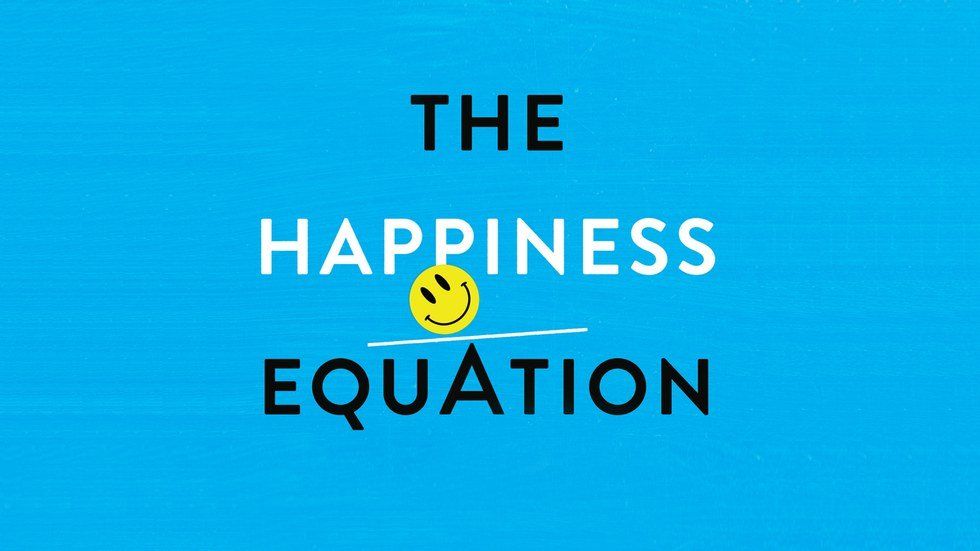I am not content, and I never will be. In all of my 19 years of life, I have come across three people whom are truly content with their lives. Everyone else always answers along the lines of: “Well, I could be happier.” Based on that answer, I pondered what being happier meant; but to answer that question, I needed to know what being the happiest meant. Can we truly attain the greatest volume of such a feeling in life? Or, do we simply assume a perspective of complete contentment?
The difference between the two is quite colossal. Happiness is defined as good fortune or luck in life or in a particular affair; success; prosperity. It is the state of pleasurable content of mind, which results from success or the attainment of what is considered good. Contentment on the other hand is having one’s desire bound by what one has; not disturbed by the desire of anything more, or of anything different, satisfied so as not to repine. Distinguishing between these two feelings made me as confused as ever, because I had always equivocated one with the other. Based on this information, it is obvious that humans can be happy, as it is a state of mind that appears and dissipates in a never ending cyclic process. However, could a person ever be one hundred percent content?
Give someone their dream job, a beautiful house, and a wonderful family, and what do you get? Someone who still wants more! The vessels of desire will never be filled, even if one’s wishes are granted; nothing will last forever. Is this a side effect of the producer-consumer economics of the world we live in today, or is it simply an innate drive within humans to crave more? I believe several things contribute to our lack of complete contentment:
- Comparing with Others
Do you find yourself scrolling through your favorite celebrity’s social media page, pointing out things you wish you had? That’s a comparison, but it is one that can get you into trouble. The more we compare ourselves financially, emotionally, physically, or intellectually, the more we continue to wallow in our unhappiness, lowering our self-esteem. This leads to a dangerous shift in focus—we forget the positive aspects of our own lives, and think about things that others have that we do not.
2. Curiosity
Although curiosity aided in the most astounding technological innovations of the millennial, it has also forced us into the submissive world of attraction. By that, I mean that we have developed tendencies to find out more about objects or experiences that are new or unfamiliar such as a new phone on the market, or a trip to Europe. There is nothing wrongful in having goals to attain these things, but do not find yourself dwelling on the old phone you have or the trip you couldn’t afford. Instead, turn these negative thoughts around by planning ways to achieve such desires. This transforms them into goals, rather than desires.
3. Ambition
Ambition knows no bounds. The sky is the limit, but that is a mantra that may contribute to our need to acquire better things. This is not necessarily wrong, but it can keep us from being content with our present achievements. Of course, there is always room for improvement, but remember that for every new step we take, a footprint is left behind. It is important to appreciate our past accomplishments.
4. Wanting to Please Others
We do many things that we consider selfless, but in fact may be a paradoxical effect. By helping others, we help ourselves, whether we like it or not. Trying to please everyone can be a difficult task, and is only a temporary feeling of contentment. By putting in our best efforts to please others all the time, we forget that they are also people like us who are never satisfied with anything for more than a short-period of time. Improving our self-esteem by creating a better impression never leads to any ultimate satisfaction on either end.
5. Social Influence
Society praises those who have more than the person next to them, and we are encouraged to enrich our minds with lust over vanity. We tend to get lost in what the world is telling us, and what we should be telling ourselves. We forget that the best things in life are free. The key to living a content life is to realize that desiring and attaining certain things will never keep us fulfilled. Don’t be a slave to your desires. Of course, we will never have true contentment, but we can certainly strive for it.
Contentment is not the fulfillment of what you want, but the realization of how much you really have.





















